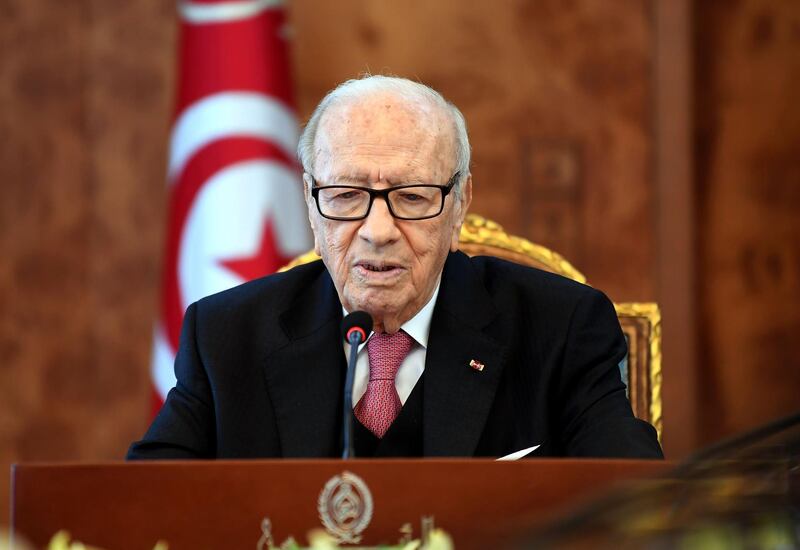A Tunisian panel has called on President Beji Caid Essebsi to make an official apology to victims of human rights violations at the hands of the state between 1955 and 2013.
The Truth and Dignity Commission (IVD) – tasked with healing the wounds inflicted by dictatorships in the North African country – published a report on Tuesday asking for reforms and the dismantling of the "system of corruption, repression and dictatorship" within state institutions.
The independent panel was set up in 2014, three years after the toppling of dictator Zine El Abidine Ben Ali, in a bid to help Tunisia transition to democracy. The IVD has investigated more than 62,000 cases of human rights violations and is the first commission of its kind in the Middle East.
The report suggests measures to boost magistrate and court independence, as well as legal protection for victims and witnesses in corruption cases.
So far they have referred at least 173 cases to court following their investigations.
Tunisia's security forces should be restructured to increase transparency and prevent their use for political ends, an independent body set up to oversee the police and an intelligence service which answers directly to the president and under parliamentary supervision, according to the report.
“This is a watershed moment for Tunisia – how the government responds to the report findings will be a crucial test of its genuine commitment to human rights," an Amnesty International Researcher on Tunisia said ahead of the publication of the report.
"Tunisia’s authorities must demonstrate a clear political will to tackle impunity by protecting and enabling the specialised chambers dealing with transitional justice to carry out their work," said Fida Hamami. "The government must ensure that security sector members co-operate with transitional justice trials and that judges, victims and witnesses are protected from any act of intimidation or reprisal."
According to Amnesty the IVD has repeatedly requested a meeting with Prime Minister Youssef Chahed to submit its report to him personally – but is yet to receive a response.
The panel asks that Mr Essebsi addresses his apology to all the victims in a presidential speech delivered at a venue to be renamed after the event.






